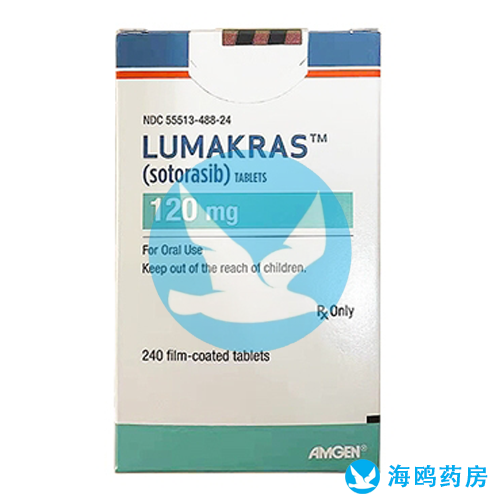Sotorasib Demonstrate Meaningful Responses in KRAS G12C+ Advanced Pancreatic Cancer
Treatment with sotorasib (Lumakras) resulted in clinically meaningful responses in a population of patients with heavily pretreated KRAS G12C–mutated locally advanced or metastatic pancreatic cancer, according to findings from the phase 1/2 CodeBreaK100 trial (NCT03600883).1

Findings from the study, which were presented as part of the American Society of Clinical Oncology Plenary Series on February 15, 2022, indicated that within the overall population of patients with pancreatic cancer (n = 38), the confirmed objective response rate (ORR) was 21.1% (95% CI, 9.55%-37.32%). Moreover, the disease control rate (DCR) was 84.2% (95% CI, 68.75%-93.98%) and the median duration of response (DOR) was 5.7 months (95% CI, 1.6not evaluable).
“This the largest dataset so far evaluating a KRAS G12C inhibitor in heavily pretreated KRAS G12C[–mutated] pancreatic cancer,” lead author John H. Strickler, MD, associate professor of medicine at Duke University School of Medicine, said during a presentation of the data. “These data support further exploration of sotorasib in this patient population with high unmet medical need.”
The global, open-label study includes patients with solid tumors that harbor KRAS G12C mutations. Patients in the current evaluation include those with locally advanced or metastatic pancreatic cancer, of whom 12 patients were treated in the phase 1 dose-escalation portion and 26 in the phase 2 efficacy and safety portion. Investigators enrolled patients who received at least 1 prior systemic therapy or who were intolerant to or ineligible for currently available therapies. Sotorasib was administered orally, once daily at 960 mg.
A key primary end point for the current evaluation was ORR, with key secondary end points including DOR, DCR, progression-free survival (PFS), overall survival (OS), time to response, and safety.
Patients had a median age of 65.5 years and most were male (76.3%). In total, 31.6% of patients had an ECOG performance status of 0, 57.9% had a status of 1, and 10.5% had a status of 2. Moreover, 44.7% of patients had 1 site of metastatic disease, 39.5% had 2 sites, and 15.8% had 3 sites or more. Common metastatic sites included the liver (81.6%), lung (42.1%), and bone (10.5%).
“All patients had stage IV disease at enrollment and more than half, about 55%, were diagnosed with de novo stage IV metastatic disease at initial diagnosis,” Strickler said.
The patient population was heavily pretreated, with 79% having received 2 or more prior therapies. All patients had previously received chemotherapy, with common agents including fluoropyrimidine (89.5%), irinotecan (86.6%), and oxaliplatin or cisplatin (84.2%). Moreover, 76.3% of patients had previously received the combination of leucovorin, fluorouracil, irinotecan, and oxaliplatin (FOLFIRINOX) and 65.8% received gemcitabine and nab-paclitaxel.
Additional findings from the study indicated that after a median follow-up of 16.8 months (range, 0.6-16.8), patients treated with sotorasib experienced a median PFS of 4.0 months (95% CI, 2.8-5.6) and a median OS of 6.9 months (95% CI, 5.0-9.1).
In particular, a 64-year-old female patient with metastatic disease of the liver, lymph nodes, lung, and peritoneum at baseline who had previously received FOLFIRINOX achieved a partial response following treatment with sotorasib. At baseline, she had a liver lesion measuring 2.2 cm, and over 18 weeks following treatment, the lesion shrunk to 0.8 cm.
In terms of safety, 42.1% of patients experienced any-grade adverse effects (AEs) and 15.8% had AEs that were grade 3 in severity. No grade 4 or 5 AEs were reported. Common grade 3 treatment-emergent AEs (TRAEs) included diarrhea (5.3%) and fatigue (5.3%). Additionally, 1 patient each experienced grade 3 abdominal pain, alanine transaminase increase, aspartate aminotransferase increase, pleural effusion, and pulmonary embolism. A total of 13.2% of patients had an AE leading to reduction or discontinuation of sotorasib and 7.9% had a serious AE. Investigators did not report any TRAEs leading to death or discontinuation.
Data from the CodeBreaK100 trial in patients with non–small cell lung cancer had previously led to accelerated approval of sotorasib in patients with KRAS G12C–mutated locally advanced or metastatic tumors, as determined by an FDA‑approved test, who have received at least one prior systemic therapy.2
References
Strickler JH, Satake H, Hollebecque A, et al. First data with sotorasib in patients with pancreatic cancer with KRAS p.G12C mutation: a phase 1/2 study evaluating efficacy and safety. Presented at: American Society of Clinical Oncology Plenary Series. February 15, 2022; Virtual. Accessed February 15, 2022.
FDA Approves First Targeted Therapy for Lung Cancer Mutation Previously Considered Resistant to Drug Therapy. News release. FDA. May 28, 2021. Accessed May 28, 2021. https://bit.ly/3fwHwV
https://www.cancernetwork.com/view/sotorasib-demonstrate-meaningful-responses-in-kras-g12c-advanced-pancreatic-cancer
Disclaimer:《Sotorasib Demonstrate Meaningful Responses in KRAS G12C+ Advanced Pancreatic Cancer》Edited and sorted by Seagull Pharmacy's editors. Please contact us in time if there is any infringement. In addition, the suggestions for drug usage, dosage and disease mentioned in the article are only for medical staff's reference, and can not be used as any basis for medication!